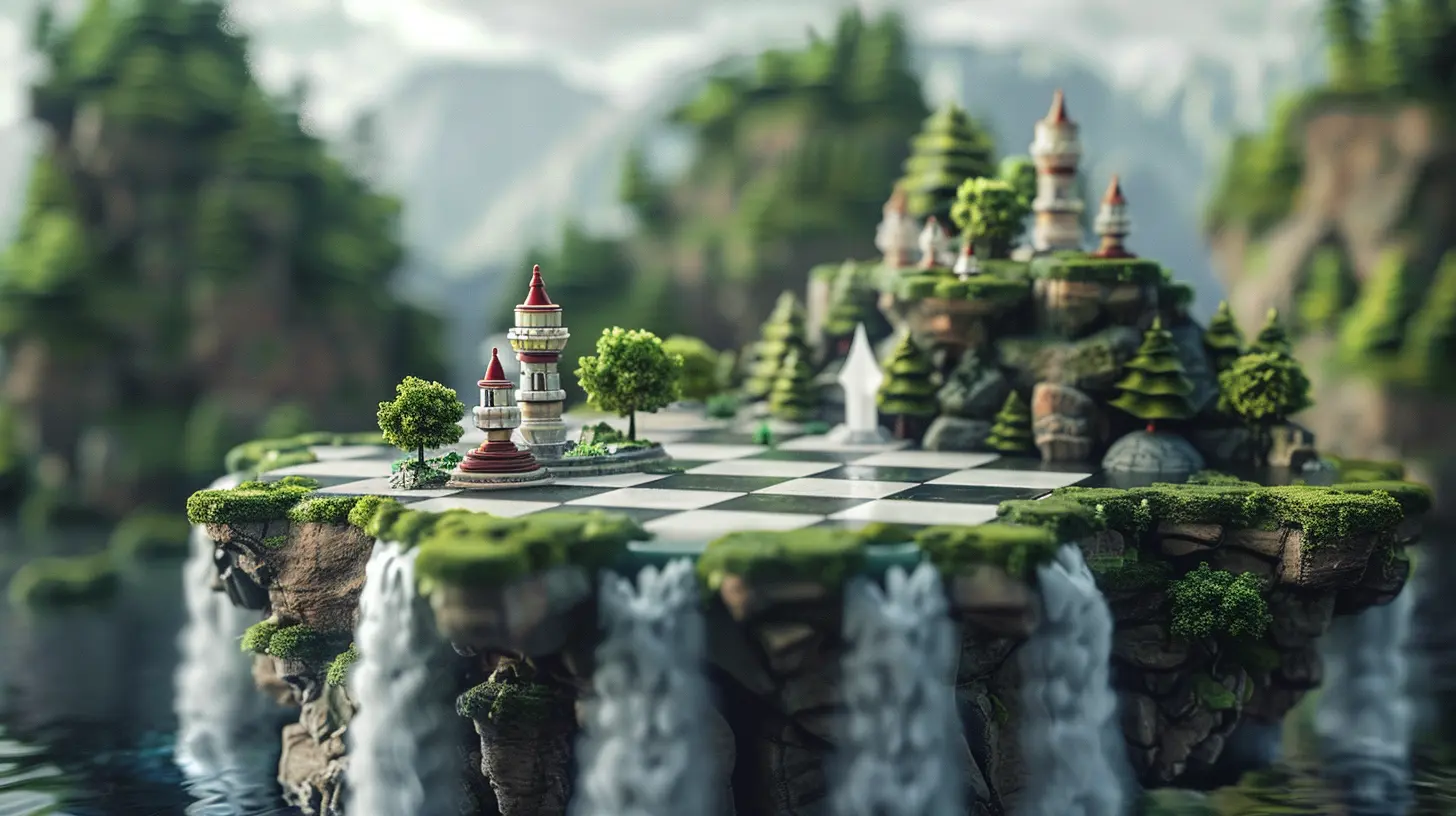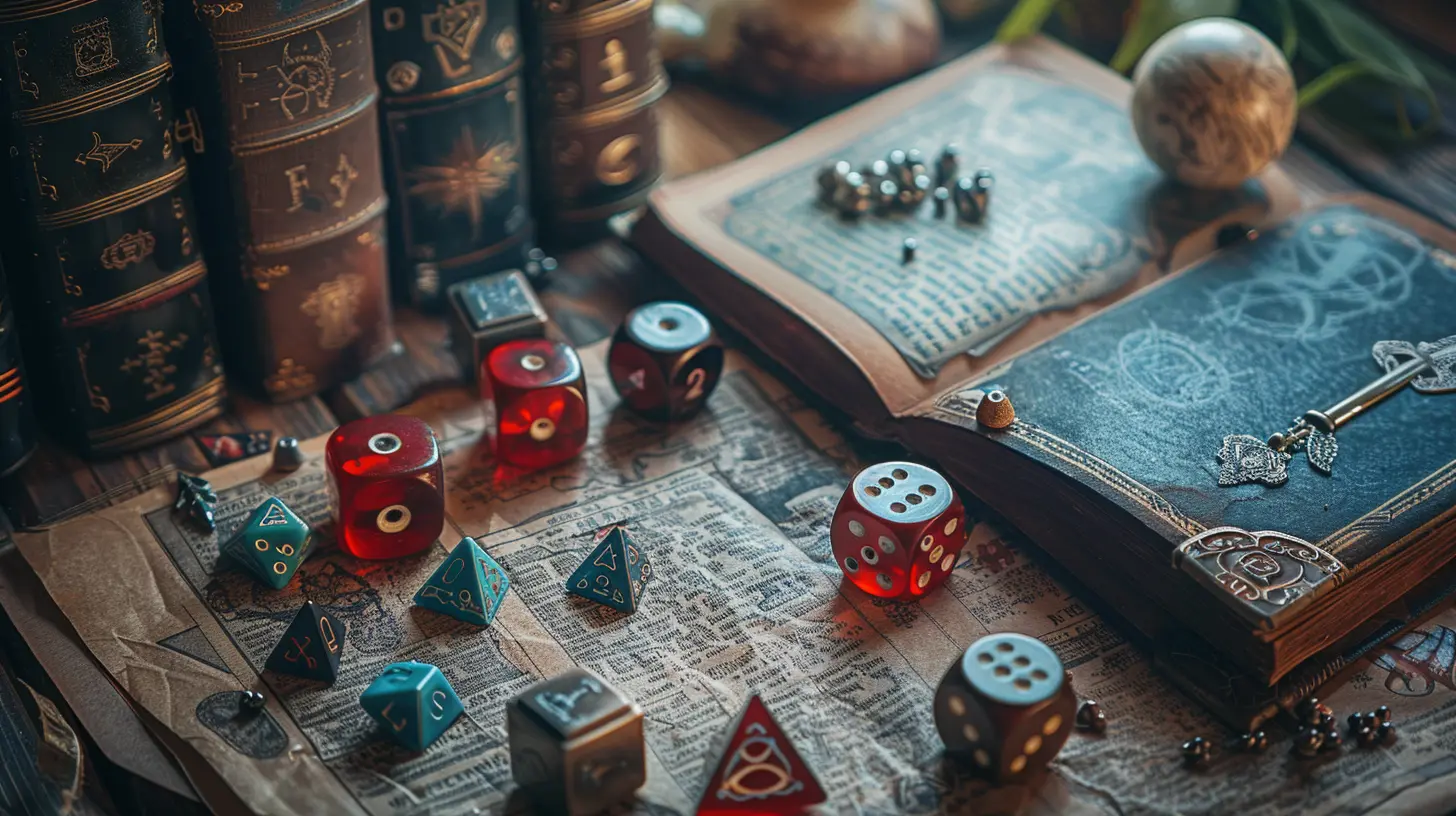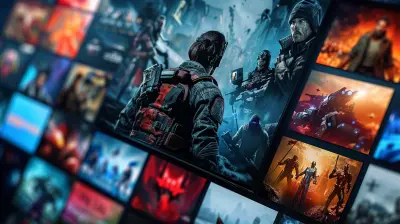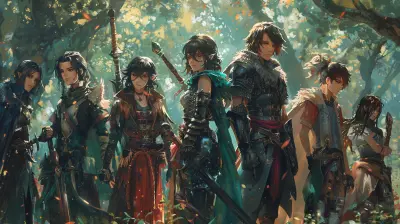Balancing Creativity and Efficiency in Gameplay
1 August 2025
Let’s face it — games are getting more complex, more beautiful, and more immersive. But with all that allure comes a subtle tug-of-war: creativity vs. efficiency. It’s the age-old debate that pops up every time you’re building a base, customizing a character, or even choosing your next strategic move in battle. Should you go for the fun, wacky route you dream up… or stick with the cold, hard numbers for the best outcome?
In this article, we’ll dive deep into what it means to balance creativity and efficiency in gameplay, why it's crucial for developers and players alike, and how both sides can thrive without stepping on each other’s toes.
What Do We Mean by Creativity in Games?
When we talk about creativity in games, we're not just talking about designing levels or characters — although that’s definitely part of it. Creativity in gameplay often shows up as freedom. It’s about giving players the tools and the sandbox to experiment with, make mistakes, and forge their own paths.Think about Minecraft. There’s no "efficient" way to build a replica of Hogwarts block by block, yet players do it because they can. That’s pure, unfiltered creativity.
Or how about in open-world RPGs like The Elder Scrolls V: Skyrim? Sure, you could follow the main story and power-level the most efficient skill trees — but you could also roleplay as a pacifist alchemist who travels the world collecting herbs. Not the most optimal way to "win", but infinitely fun and deeply personal.
Key Elements of Creative Gameplay:
- Player freedom: Letting gamers make meaningful choices.- Emergent storytelling: Crafting unique in-game narratives without scripted events.
- Unconventional mechanics: Mechanics that invite experimentation.
- Personal expression: Customizing characters, gear, or playstyles.

Defining Efficiency in Gaming Terms
Now, swing over to the other side: efficiency. If creativity is the wild artist in the back of the class, efficiency is the straight-A student who color-codes their notes and finishes the boss fight in 34.2 seconds. It’s about getting things done — fast, smart, and with as little friction as possible.Efficiency rules in competitive games like StarCraft II or Valorant, where milliseconds and precision separate victory from defeat. In these spaces, players often obsess over mechanics, timing, and strategies. It’s the logic side of gameplay, and it’s powerful.
Efficiency can also look like:
- Min-maxing: Optimizing character builds or loadouts for maximum stats.
- Speedrunning: Beating games with lightning-fast precision.
- Resource management: Using the least to get the most.
- Meta-strategies: Following community-tested frameworks for best results.
In short, efficiency is about performance — measurable, repeatable, often brutal in its honesty.
The Tug-of-War: Where Creativity Clashes with Efficiency
Here's the kicker — sometimes, being efficient means ditching creativity altogether. And vice versa.Ever played an RPG where using the most powerful gear made your character look like a complete fashion disaster? Or maybe you wanted to try a unique weapon combo in a shooter, but everyone online told you it wasn’t meta?
That’s where the conflict hits hard. Players want to express themselves, but they also want to succeed. And too often, success penalizes creativity.
Examples of the Clash:
- MMORPGs like World of Warcraft: Want to use that cool spell? Sorry, it’s not viable for raids.- Survival games like Rust: Creative base designs are fun, but they’re also easy to raid.
- Battle royales like Fortnite: Building stylish structures looks nice, but turtle builds win games.
So where do we draw the line? How do we balance fun and functionality?
Why the Balance Matters
Balancing creativity and efficiency isn’t just a philosophical debate — it’s about making meaningful, long-lasting games. Whether you’re a developer or a player, striking that balance influences everything from enjoyment to retention.For Game Developers:
If your game doesn’t allow creative freedom, it might get dull fast — even if it's hyper-polished. Players will burn out if they feel like they’re on rails with no room to explore.But if everything is too open-ended, it can overwhelm players or make them feel like their choices don’t matter in the broader game world. Paralysis by analysis is real, and nobody wants to waste 40 hours realizing they picked the "wrong" build.
For Players:
You want to feel smart, but also unique. Powerful, but also personal. When a game manages to give you options that are both creative and effective, it sticks with you.Think about games where you said, “That was totally my idea” — that’s the magic combo right there.
How Games Successfully Balance Both
Let’s look at some games that walk the tightrope beautifully.1. The Legend of Zelda: Tears of the Kingdom
This game lets you build nearly anything with its Ultrahand feature — from gliders to battle bots. While there are more "efficient" builds, the power lies in your ability to invent.The beauty? Players invent efficient AND creative solutions — merging both worlds naturally.
2. Civilization VI
You can play Civ like a warmongering tyrant or a peaceful diplomat. Both routes can be efficient depending on your strategy, but the storytelling and diverse playstyles make every run unique.Creativity is rewarded with viable paths, not punished.
3. Hitman 3
Want to poison the drink? Set a trap? Impersonate someone? There are dozens of ways to finish each mission. Some are faster and more "efficient", but the game celebrates unique approaches instead of penalizing them.Efficiency unlocks trophies. Creativity unlocks stories.
Mechanics That Encourage Creativity AND Efficiency
Some gameplay mechanics naturally encourage the best of both worlds. Game designers who get this balance right tend to rely on a few key methods:1. Sandbox Systems
These give players tools but not rules. Want to build a skybridge using explosives? Go for it. The physics engine will do the rest. These systems make efficiency a byproduct of creativity, not a blocker.2. Class Flexibility
Games like Divinity: Original Sin 2 allow you to respec characters mid-game. That means trying out wild builds is encouraged — not punished.3. Scalable Difficulty
Games that adapt to your playstyle let you choose between efficiency and creativity. Want to roam for 40 hours building an elaborate village? Cool. Want to rush the final boss in three? Also cool.What Can Players Do to Embrace Both?
If you’re a player stuck between playing "the right way" and doing what feels fun, here’s a thought: do both, just not at the same time. Here's how:- Play twice. First for the story and roleplay, second for the grind and min-max.
- Set your own goals. Not everything has to be leaderboard-worthy.
- Join niche communities. You’d be surprised how many people are into weird builds and creative runs.
- Mix it up. Try hybrid builds or off-meta tactics. You might crush it—or at least have a blast trying.
The experience of playing a game is just as important as winning it.
Developers — Here’s How You Can Help
Designing games that support both creativity and efficiency isn’t easy. But it’s worth it. Here are a few suggestions:1. Let the Meta Evolve
Avoid hard-coding what’s "best". If players are always finding new ways to beat a level, that’s a sign of great design.2. Reward Diverse Strategies
Offer achievements or narrative outcomes based on playstyle. Not just brute-forcing your way through.3. Offer Meaningful Choice
Choices shouldn’t just be cosmetic. Give branching outcomes, playstyle bonuses, or unique content based on how someone plays.4. Don’t Penalize Fun
If a player wants to be a pacifist elf bard who only uses music to win battles, let them. Maybe reward the weird.The Future of Gameplay: Where Do We Go from Here?
As AI, procedural generation, and user-generated content become more advanced, the boundaries between creativity and efficiency will blur even further. Games might start learning your playstyle and offering content tailored to it.Imagine a shooter that adapts its AI to challenge both speedrunners and slow-paced tacticians. Or a city-builder that learns your aesthetic preferences and suggests efficient layouts that still match your vibe.
The ideal future of gaming? A space where creativity and efficiency aren’t enemies — they’re dance partners.
Final Thoughts
Balancing creativity and efficiency in gameplay is the secret sauce behind the games we remember most. Whether you’re slaying dragons or designing pixel-perfect factories, finding that sweet spot between personal expression and optimal strategy is a journey worth taking.Don’t be afraid to color outside the lines. But also, don’t underestimate the beauty of a perfectly executed strat. In the end, gaming isn’t just about how you play — it’s about why you play.
Whatever your reason, make it yours.
all images in this post were generated using AI tools
Category:
Gaming StrategiesAuthor:

Kaitlyn Pace
Discussion
rate this article
1 comments
Everett McLaury
“Creativity thrives when players are empowered, not shackled by rigid efficiency. Game designers must embrace innovative mechanics that invite exploration, rather than settling for cookie-cutter solutions. Let’s prioritize immersive experiences over mere metrics—real artistry demands bold choices, not safe compromises. Game on!”
August 14, 2025 at 3:51 AM

Kaitlyn Pace
Thank you for your insightful comment! I completely agree that empowering players fosters creativity and exploration, making for richer, more immersive experiences. Embracing innovative mechanics is key to elevating gameplay beyond mere efficiency. Game on!


